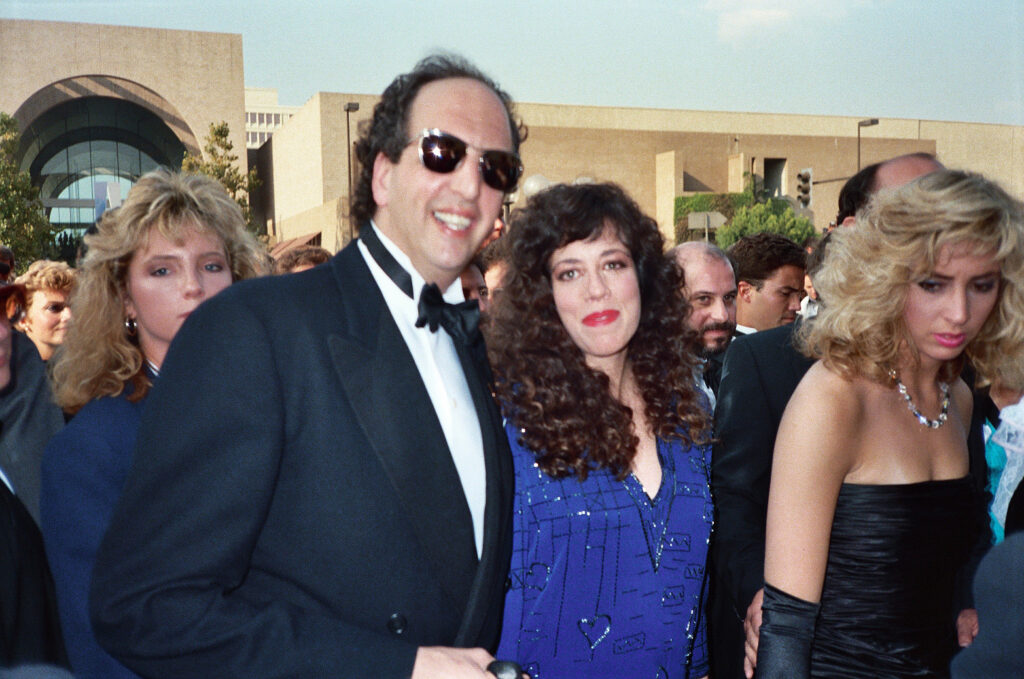
We all love a good quote. They’re the verbal shortcuts to wisdom, wit, and profound insight we often assume are gospel truth. These famous lines shape our understanding of history and even our daily philosophies. But what if many of these cherished pearls of wisdom are, well, not quite what they seem?
History is brimming with powerful statements that have, over time, become distorted, misunderstood, or outright fabricated. Whether due to simplification or misattribution, these iconic lines have often been ripped from their original context, gaining entirely new lives. It’s a fascinating journey into how information spreads and solidifies into collective “truth,” even when it’s utterly false.
Get ready to have your intellectual socks rocked off as we embark on a thrilling expedition through historical misattribution. We’re here to set the record straight on some of the most famous quotes you’ve probably been getting wrong your entire life. Prepare to discover the surprising (and often much more interesting) real stories behind the words you thought you knew by heart.
1. **“Let them eat cake.” – Marie Antoinette**Few phrases are as notorious for epitomizing royal indifference as Marie Antoinette’s supposed “Let them eat cake.” This quote has cemented her legacy as a heartless queen, detached from her people’s suffering during the French Revolution. It’s a compelling narrative of aristocratic cruelty, deeply etched into popular imagination.
However, historical records reveal that Marie Antoinette most likely never uttered these words. Historians, after extensive research, found no evidence supporting this widely circulated claim. The quote, it seems, was not a genuine declaration but a powerful piece of political propaganda.
The phrase, or a variation (“Qu’ils mangent de la brioche”), appears in Jean-Jacques Rousseau’s “Confessions,” published when Marie Antoinette was only nine years old. It was attributed to an unnamed “great princess,” likely intended as satire. Its later connection to Marie Antoinette was a brilliant political framing, painting her as out-of-touch and deserving of popular wrath. This fake quote became far more famous than the real person.

2. **“I cannot tell a lie.” – George Washington**The heartwarming image of young George Washington confessing about felling a cherry tree with the words, “I cannot tell a lie,” is an enduring piece of American folklore. This tale has long served as a powerful lesson in honesty, inextricably linking Washington’s character with unblemished truthfulness. It shapes our earliest understanding of the nation’s first president.
Yet, prepare for a dose of historical reality: this iconic story and its accompanying quote are entirely apocryphal. There’s no historical evidence that George Washington ever said these words or that the cherry tree incident actually happened. The entire saga was a fictional creation, carefully crafted by an early biographer.
The imaginative mind behind this myth was Mason Locke Weems, who published his biography of Washington in 1800. Weems, aiming to present Washington as a virtuous, almost saintly figure for the fledgling nation, invented the cherry tree narrative. His goal was to illustrate Washington’s honest character and provide a moral template for future generations. Thus, the quote exists purely within Weems’s embellished biography, not in any authentic record of Washington’s life.

3. **“Elementary, my dear Watson.” – Sherlock Holmes**”Elementary, my dear Watson” is a phrase instantly recognizable as the quintessential pronouncement from Sherlock Holmes to his loyal companion. It conjures images of the world’s most famous consulting detective effortlessly solving complex mysteries, serving as his signature verbal flourish of intellectual superiority. This iconic line is an indelible part of the Holmesian mystique.
However, prepare for a revelation that might just unravel your perception of literary history: Sir Arthur Conan Doyle, the creator of Sherlock Holmes, never actually wrote this exact phrase in any of his beloved stories. The line, a hallmark of the character’s interactions, is, in fact, an invention that gained traction outside of the original literary canon.
While Holmes does utter “Elementary” and “my dear Watson” separately within Conan Doyle’s extensive works, the combined, definitive phrase never makes an appearance. The seamless amalgamation first emerged in P.G. Wodehouse’s novel, “Psmith, Journalist” (1915). Wodehouse referenced Holmes while crafting this now famous line. Its true ascent to legendary status occurred through various film adaptations.
4. **“Well-behaved women seldom make history.” – Laurel Thatcher Ulrich**This pithy, empowering statement – “Well-behaved women seldom make history” – has evolved into a popular mantra for rebellion, gracing t-shirts, mugs, and countless social media posts. It’s often invoked to celebrate trailblazing women who defied norms, encouraging bold, unconventional action. You might assume it originated from some long-forgotten feminist icon.
Yet, the true origin of this widely celebrated quote is far more recent and, ironically, its intended meaning has been almost completely inverted. This powerful declaration wasn’t penned by an ancient activist; it was written in 1976 by historian Laurel Thatcher Ulrich, appearing in a scholarly article. Her original intent was not to inspire rebellion.
Ulrich’s point was a nuanced critique of how history traditionally gets written. She argued that historians often overlooked the quiet, ordinary women whose lives, while vital to society, didn’t involve grand gestures. These “well-behaved” women seldom made it into history books precisely *because* their lives didn’t fit the dramatic narratives historians typically favored.
The quote, therefore, was originally a commentary on biases within historical records, not an encouragement for women to misbehave. Its subsequent popularization, however, twisted its meaning entirely. People used it to advocate for bold, non-conformist behavior, transforming Ulrich’s academic observation into a slogan for female empowerment. Ironically, this very misinterpretation helped the quote, and Ulrich herself, “make history.”

5. **“Money is the root of all evil.” – The Bible**”Money is the root of all evil” is a phrase so pervasive in our culture that it’s often deployed as a definitive condemnation of greed. It’s commonly cited as an unequivocal biblical decree against the pursuit of riches. This succinct statement makes a powerful, easily digestible point, resonating with those who view money as inherently problematic.
However, for those seeking precise biblical wisdom, this oft-quoted phrase is, in fact, a subtle yet significant misquotation. The actual verse from 1 Timothy 6:10 reads, “For the *love of money* is the root of all evil.” That small, seemingly insignificant addition of “the love of” fundamentally alters the entire meaning and theological thrust of the statement.
The original biblical writer was not declaring money itself to be inherently evil. Instead, the warning was directed at the *obsession* with money, the worship of mammon, and the prioritization of wealth above all else. It cautions against the idolatry of wealth. This message focuses on an internal spiritual or moral failing—the *love* of money—rather than an external object.

6. **“Be the change you wish to see in the world.” – Mahatma Gandhi**Few figures embody transformative action and moral leadership more than Mahatma Gandhi, making it logical that “Be the change you wish to see in the world,” is almost universally attributed to him. It’s a beautiful, concise, and incredibly inspiring call to personal responsibility, urging individuals to embody the ideals they seek in society.
Yet, despite its ubiquitous presence on inspirational posters and social media, Gandhi never actually uttered this exact phrase. While the sentiment profoundly aligns with his philosophy of self-discipline and leading by example, the popular quote is a simplification—a paraphrase created for memorability, rather than a verbatim utterance.
Gandhi’s original statements on this subject were more complex. His actual words were: “If we could change ourselves, the tendencies in the world would also change. As a man changes his own nature, so does the attitude of the world change towards him.” This longer explanation captures the same essence but highlights the intricate relationship between inner transformation and outer societal shifts.
7. **“I fear all we have done is to awaken a sleeping giant and fill him with a terrible resolve.” – Isoroku Yamamoto**
The dramatic aftermath of Pearl Harbor in films like *Tora! Tora! Tora!* and *Pearl Harbor*, depicts Admiral Isoroku Yamamoto remarking, “I fear all we have done is to awaken a sleeping giant and fill him with a terrible resolve.” This powerful quote has proliferated, often cited as evidence that Yamamoto, knowing America’s industrial might, harbored deep reservations about war.
It’s a powerful, prescient statement, lending tragic foresight to the Japanese attack. However, the dramatic truth is that there is no documented evidence that Yamamoto ever uttered or wrote down these words. This iconic line, which has so deeply shaped our understanding of his supposed internal conflict, appears to be a dramatic invention of screenwriters, not a genuine historical record.
While Yamamoto did approach Pacific War planning reluctantly, convinced Japan’s best hope was a negotiated peace after swift strikes, this didn’t manifest in this specific quote. He had toured the U.S. and was aware of its immense industrial capability. His strategy was a desperate gamble, hoping defeats would prevent a protracted war, not a prophetic sigh about awakening a “sleeping giant.”
Japanese diaries and logs confirm Yamamoto’s profound depression after Pearl Harbor. He wrote that there was “no pride to be had for having smitten a sleeping enemy,” and that the attacker should feel shame. He anticipated a “determined counterattack,” but made no mention of awakening a “sleeping giant.” The quote is inconsistent with his character.
Both *Tora! Tora! Tora!* producer and screenwriter claimed to have seen the quote in writing, but neither produced documents, and no historian has found them. The *Pearl Harbor* director referenced the earlier film. With no reference prior to 1970, its attribution to Yamamoto is almost certainly false, yet it remains indelibly linked to him through cinematic storytelling.
Now that we’ve unravelled some of the most stubborn misattributions, let’s dive deeper into a few more iconic lines that have taken on lives of their own, far removed from their original intentions. It’s a journey into the quirky ways history gets twisted, showcasing how a little bit of simplification, a dash of pop culture, and a whole lot of repetition can transform a nuanced thought into an enduring (and often incorrect) legend.

8. **“I disapprove of what you say, but I will defend to the death your right to say it.” – Voltaire**
This powerful declaration is practically synonymous with the spirit of free speech, universally celebrated as a cornerstone of modern liberty. It’s almost always attributed to the Enlightenment philosopher Voltaire, a figure renowned for championing reason and individual freedoms. This quote perfectly encapsulates the ideal of tolerance and intellectual bravery we associate with him.
However, a fascinating twist in historical attribution reveals that Voltaire himself never actually uttered or penned these precise words. The truth, like many of history’s best stories, is a bit more intricate. The line was, in fact, crafted by Evelyn Beatrice Hall, who wrote under the pseudonym S.G. Tallentyre, for her 1906 biography, “The Friends of Voltaire.”
Hall created this memorable quote as a pithy summary, an eloquent encapsulation of Voltaire’s expansive philosophical stance on the paramount importance of freedom of expression. She sought to distill his complex arguments into an easily digestible and impactful statement. The irony, of course, is that while it perfectly captures his spirit, it was never his own direct utterance.
Despite its apocryphal nature, this quote persists because it resonates so deeply with the ideals it champions and aligns seamlessly with Voltaire’s known legacy. It’s a testament to how effectively a carefully worded summary can overshadow the original source, becoming more famous than the philosopher’s actual statements, enduring as a powerful symbol in the ongoing discourse on civil liberties.

9. **“Winning isn’t everything; it’s the only thing.” – Vince Lombardi**This uncompromising mantra has become the quintessential expression of competitive drive, forever etched into the lore of sports and attributed almost exclusively to legendary Green Bay Packers coach Vince Lombardi. It’s the kind of quote you’d see on motivational posters, screamed in locker rooms, and recited by ambitious types everywhere, signifying an absolute, relentless pursuit of victory above all else.
But here’s a curveball for you: while Lombardi was certainly a titan of coaching who valued winning immensely, he repeatedly denied saying this exact phrase. In fact, he often made it a point to clarify its origin, indicating that the widely celebrated quote wasn’t his own brainchild. It’s a classic example of how a sentiment can become so strongly associated with a figure that its true source gets entirely overshadowed.
The real originator of this famous saying was actually another revered coach, Red Sanders of the UCLA Bruins football team. Lombardi himself frequently quoted Sanders, who had a slightly different, though equally competitive, philosophy: “Winning isn’t a sometimes thing; it’s an all the time thing.” This subtle difference highlights that Lombardi’s approach, while intensely focused on victory, might have been interpreted and popularized through Sanders’ more absolute phrasing.
Despite Lombardi’s attempts to set the record straight, the misattribution has stubbornly endured. It’s a powerful illustration of how a catchy, impactful phrase, once linked to a charismatic figure, can become indelibly part of their legend, regardless of factual accuracy. For many, it will always be “Lombardi’s quote,” a testament to his legacy even if the words weren’t precisely his.

10. **“The only thing necessary for the triumph of evil is for good men to do nothing.” – Edmund Burke**
This profound statement is often invoked as a solemn warning, a clarion call to civic duty and active moral engagement. It underscores the critical responsibility individuals bear in confronting injustice and is almost universally attributed to the 18th-century Irish statesman and philosopher, Edmund Burke, a figure revered for his insights into society and government. The quote, concise and powerful, feels perfectly aligned with his legacy.
Yet, for all its widespread recognition and resonant meaning, historical records indicate that Burke never actually penned or uttered this exact sentence. While the sentiment it expresses undoubtedly aligns with his broader philosophical framework concerning civic participation and the dangers of complacency, the popular quote is, in fact, a paraphrase that has been refined and simplified over time.
Burke’s writings contain various similar phrases and ideas about the importance of active virtue and the peril of inaction in the face of societal decay. He consistently argued that a healthy society requires vigilance and engagement from its citizens. However, this particular, highly quotable formulation appears to be a later construct, attributed to him because it so effectively summarizes his core beliefs.
Its enduring popularity speaks to the quote’s inherent truth and its ability to inspire. It’s a reminder that sometimes, a distilled version of a philosopher’s complex ideas can become more famous and impactful than their original, more intricate statements. The misquote serves as a powerful testament to the enduring influence of Burke’s thought, even if the words themselves are an historical approximation.

11. **“The ends justify the means.” – Niccolò Machiavelli**Few phrases in political discourse carry as much weight, or as much controversy, as “The ends justify the means.” It’s a statement instantly associated with ruthless pragmatism and moral ambiguity, and it has become the shorthand for the entire philosophy attributed to Niccolò Machiavelli. His name itself is often evoked when discussing cynical, power-driven tactics, and this quote forms the bedrock of that perception.
However, attributing this starkly simple declaration directly to Machiavelli is, in itself, a significant oversimplification of his actual political thought. While the essence of his writings in works like “The Prince” certainly explores the practical realities of acquiring and maintaining power, he never articulated his ideas in such a blunt, unqualified phrase. His arguments are far more intricate and nuanced than this singular, often misconstrued, slogan suggests.
Machiavelli’s true focus was on the effective governance and stability of a state, often acknowledging that a ruler might need to act outside conventional morality to achieve these higher goals. He argued that rulers are judged by their success in safeguarding the state, and that sometimes, actions that seem morally questionable are necessary for the greater good of the populace. He delves into complex scenarios, not a blanket endorsement of any action, regardless of its ethical implications.
The quote, therefore, has become a reductionist caricature of his actual philosophy, flattening the rich complexity of his observations on human nature and political necessity into a maxim for ruthlessness. It’s a prime example of how a popular phrase can simplify and distort a thinker’s original ideas, turning a nuanced treatise on statecraft into a convenient, yet misleading, catchphrase for amoral ambition. It’s a stark reminder that understanding context is everything when interpreting historical figures.

12. **“Nice guys finish last.” – Leo Durocher**This phrase has become a staple in popular culture, often used to lament the perceived unfairness of life, suggesting that kindness and integrity are disadvantages in a competitive world. It’s almost universally attributed to the legendary baseball manager Leo Durocher, renowned for his fiery personality and competitive spirit, making the sentiment seem perfectly in character for him.
The truth behind this iconic quote, however, is far more specific and contextual than its sweeping popular usage implies. Durocher did indeed utter a similar statement, but it wasn’t a universal condemnation of “nice guys” or a general observation about life’s injustices. Instead, his actual words were directed at a very particular team and situation.
In 1946, while managing the Brooklyn Dodgers, Durocher observed the New York Giants. His full, original quote, or at least the one widely reported, was more along the lines of, “Take a look at them. They’re all nice guys. And they’re going to finish last. Nice guys. Finish last.” He wasn’t making a philosophical statement about morality but a critical assessment of a specific rival team’s perceived lack of competitive edge.
Journalistic paraphrasing and the natural tendency to simplify for memorability quickly stripped away this vital context. The phrase became a generalized maxim, losing its original specificity and gaining a far broader, more pessimistic meaning. It’s a classic case of how a localized, observational comment can evolve into an overarching cultural adage, proving once again that a little context goes a very long way.

13. **“Power corrupts; absolute power corrupts absolutely.” – Lord Acton**This often-cited maxim serves as a profound warning about the inherent dangers of unchecked authority, articulating a fundamental truth about human nature and the temptations that come with control. It’s a quote that resonates deeply in discussions of politics, ethics, and leadership, and it’s commonly attributed to Lord Acton, a distinguished 19th-century British historian and moralist.
Indeed, in this instance, the attribution is largely correct, but with a crucial, albeit subtle, distinction that sheds light on how even accurately sourced quotes can undergo minor, yet significant, alterations over time. Lord Acton did articulate this sentiment, but his original phrasing carried a slightly more nuanced weight, emphasizing a tendency rather than an absolute certainty.
The actual quote, penned by Lord Acton in an 1887 letter to Bishop Mandell Creighton, reads: “Power tends to corrupt, and absolute power corrupts absolutely.” The inclusion of the word “tends” in the first clause introduces a degree of probability and observation, rather than an unyielding, deterministic law. It suggests a strong likelihood, a general pattern, rather than an inescapable fate for anyone who wields power.
This small linguistic shift highlights the delicate nature of historical quotation and the unconscious desire to simplify and dramatize for impact. While the popularized version maintains the core essence of Acton’s warning, the original nuance provides a deeper, perhaps more analytical, insight into his understanding of human fallibility. It’s a subtle reminder that even when we get the speaker right, the exact words can still reveal fascinating layers of meaning.
As we journey through these historical misattributions, it becomes clear that the quotes we cherish often tell a more complex story than we initially realize. From the political propaganda of royal indifference to the journalistic shorthand of a baseball manager, these phrases reveal much about how information is shaped, simplified, and shared across generations. They aren’t just misquotes; they’re fascinating artifacts of cultural evolution, reflecting our ongoing need to encapsulate profound truths, and sometimes convenient fictions, in memorable linguistic packages.
So, the next time a powerful quote catches your eye, take a moment. Pause. Ask yourself: did they *really* say that? Because the true story behind the words is often just as captivating, if not more so, than the legend itself. It’s a mental floss for your historical memory, cleaning out the cobwebs of common misconception and letting the brilliance of genuine insight shine through. After all, the pursuit of truth, in words as in life, is a journey always worth taking.






:max_bytes(150000):strip_icc()/GettyImages-1490124850-d6601bbd395a48398574f7ac9adeecd6.jpg)